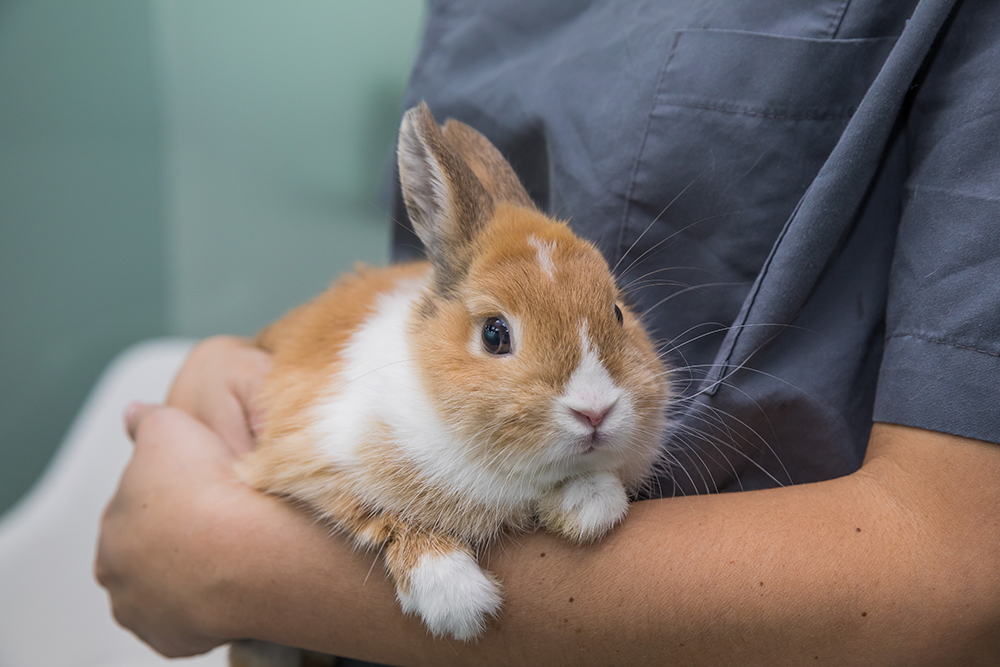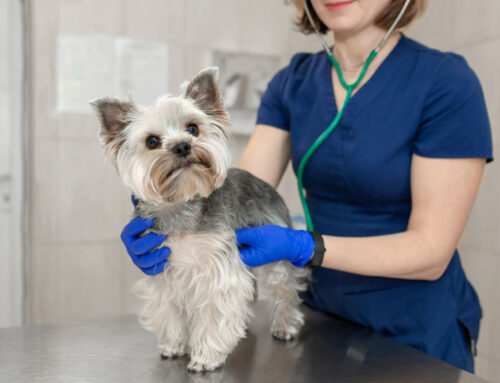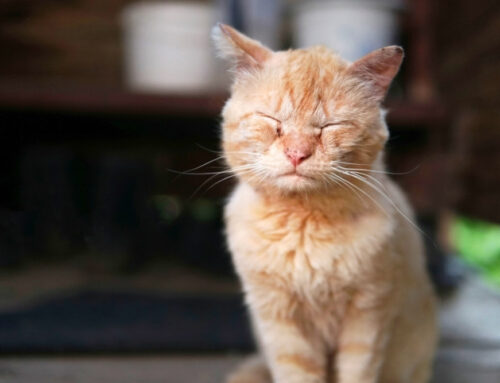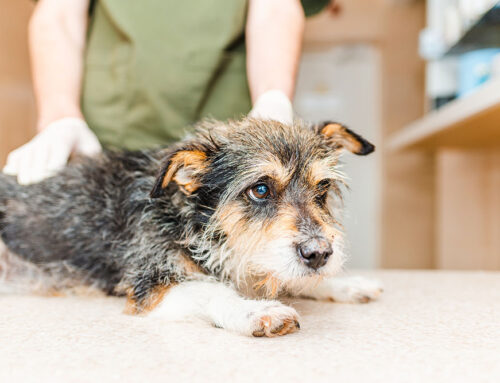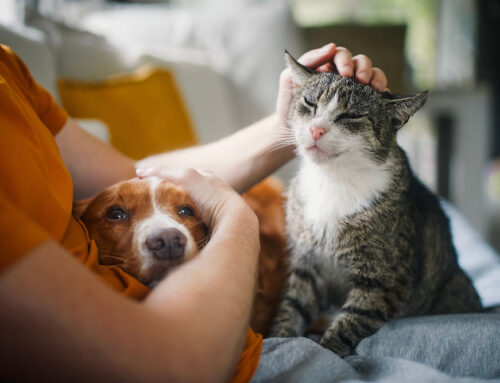Keeping Rabbits Healthy: Recognizing Common Health Problems
You might notice your rabbit eating less hay or producing smaller droppings. Perhaps grooming habits change, or your bunny seems quieter than usual. These subtle shifts often go unnoticed until a rabbit becomes seriously ill. As prey animals, rabbits instinctively hide weakness, which makes early detection challenging but critically important.
Rabbits are delicate creatures with unique medical needs. Dental overgrowth, digestive slowdowns, and respiratory or parasitic infections are among the most common problems owners face. By providing proper diet, housing, and regular veterinary care, you can prevent many of these conditions and help your rabbit live a long, healthy life.
At Parker Center Animal Clinic, we have served the Parker community since 1995. We are an AAHA accredited practice that also cares for pocket pets and many exotics, including rabbits. Our approach is compassionate, attentive, and designed to make visits as stress-free as possible.
Why Preventive Care Matters for Your Rabbit
Rabbits can deteriorate quickly once symptoms appear. What seems like minor lethargy in the morning can become a life-threatening crisis by evening. Routine health care for rabbits includes annual exams, nutritional counseling, and behavior assessments that identify risks early.
During wellness visits, we evaluate teeth for overgrowth, listen to heart and lungs, palpate the abdomen, and discuss diet and husbandry. At home, track appetite, water intake, litter box habits, activity level, and grooming. Small changes often precede obvious illness.
Diet is the foundation. Unlimited timothy or other grass hay supplies fiber for gut motility and natural tooth wear. Offer leafy greens daily and feed pellets in limited portions. Provide fresh water at all times. Safe housing with ventilation, appropriate temperature, and enrichment reduces stress and supports mental health. Our preventive care services tailor recommendations to your rabbit’s age, breed, and lifestyle.
Common Rabbit Health Challenges
Dental Disease: A Continuous Growth Problem
Rabbit teeth grow continuously. Healthy chewing on fibrous hay grinds teeth down to match growth. When this balance fails, overgrowth and malocclusion can develop, causing pain and difficulty eating.
Signs of dental disorders in rabbits include drooling, reluctance to eat hard foods, weight loss, facial swelling, eye discharge, pawing at the mouth, and audible tooth grinding. Left untreated, dental disease can lead to abscesses and systemic infection. Dental disease can also cause drooling that leads to moist dermatitis under the chin.
Prevention starts with unlimited grass hay and restricted pellets. Regular exams allow early correction before problems become painful. Treatments may include trimming or burring teeth and, in some cases, extracting damaged teeth under anesthesia. With every checkup, we provide a thorough oral examination and treatment options for rabbits.
Gastrointestinal Stasis: A Life-Threatening Emergency
GI stasis occurs when the digestive system slows or stops. This is an emergency that requires immediate care. The gut depends on steady movement to prevent gas build-up and toxin production. When motility decreases, the rabbit feels worse, which further suppresses appetite and gut function.
Triggers include low-fiber diets, pain, stress, dehydration, and underlying disease. Warning signs include refusal to eat, very small or absent fecal pellets, a hunched posture, tooth grinding from pain, and lethargy. If your rabbit stops eating or stops producing normal droppings, contact us immediately. Early intervention saves lives.
Parasitic and Infectious Diseases
Indoor rabbits can still acquire parasites and infections. Fleas can infest rabbits and may cause anemia. Intestinal parasites such as coccidia and pinworms lead to diarrhea and weight loss.
Encephalitozoon cuniculi is a common protozoal parasite that spreads through urine and can remain dormant for years. When active, it may affect the nervous system and kidneys. Symptoms include head tilt, balance issues, weakness in hind limbs, increased thirst and urination, or cataracts.
Prevention includes cage hygiene, quarantine of new rabbits for at least 30 days, and periodic fecal checks.
Mange mites burrow into skin and cause severe itching, scabbing, and hair loss. Fur mites create dandruff-like flakes and patchy baldness. Our diagnostic services offer quick in-house testing to identify parasites and guide treatment.
Reproductive and Urinary Health
Unspayed females face high rates of uterine cancer, often by age five. Reproductive health in rabbits is significantly improved with spaying and neutering. These procedures reduce cancer risk, prevent unwanted litters, and often improve litter training and behavior. Intact males may develop testicular tumors and show more territorial spraying or aggression, which typically improves after neutering.
Urinary issues can affect any rabbit. Obesity or arthritis may limit self-grooming and lead to urine scald. Bladder sludge forms when excess dietary calcium precipitates in urine and creates a thick paste that is difficult to pass. Bladder stones cause pain, straining, and blood in urine. Prevention relies on hydration and appropriate calcium intake. Signs of urinary problems include frequent posturing with little urine, pain while urinating, blood-tinged urine, or gritty deposits. Our diagnostic imaging capabilities include radiography and ultrasound to detect stones and guide treatment.
Creating an Optimal Home Environment
A healthy home is more than a cage. Providing a home for a rabbit means space to hop, stretch, and perform natural behaviors. Exercise prevents obesity, maintains muscle, and stimulates the mind. Consider a large enclosure or a rabbit-proofed room for daily supervised play.
Enrichment prevents boredom. Offer cardboard hideouts, untreated wood blocks for chewing, and safe toys for tossing and digging. Rotate items to keep interest high. Social interaction matters as well. Many rabbits thrive with a bonded companion or with regular positive time with their humans.
Litterbox training your rabbit is usually straightforward. Place a box in the corner your rabbit favors and use paper-based or aspen litter. Avoid clay or clumping litters that can cause intestinal blockages. Add a handful of hay to encourage use. Clean daily and praise success.
Minimize stress. Keep temperatures around 60 to 70°F, provide quiet resting spaces, and avoid loud noises and rough handling. Recognize stress signals such as hiding, reduced grooming, or changes in posture, and adjust the environment promptly. Environmental cleanliness is key. Keep bedding clean and dry, ensure good ventilation, and brush regularly to remove loose hair and spot trouble areas.
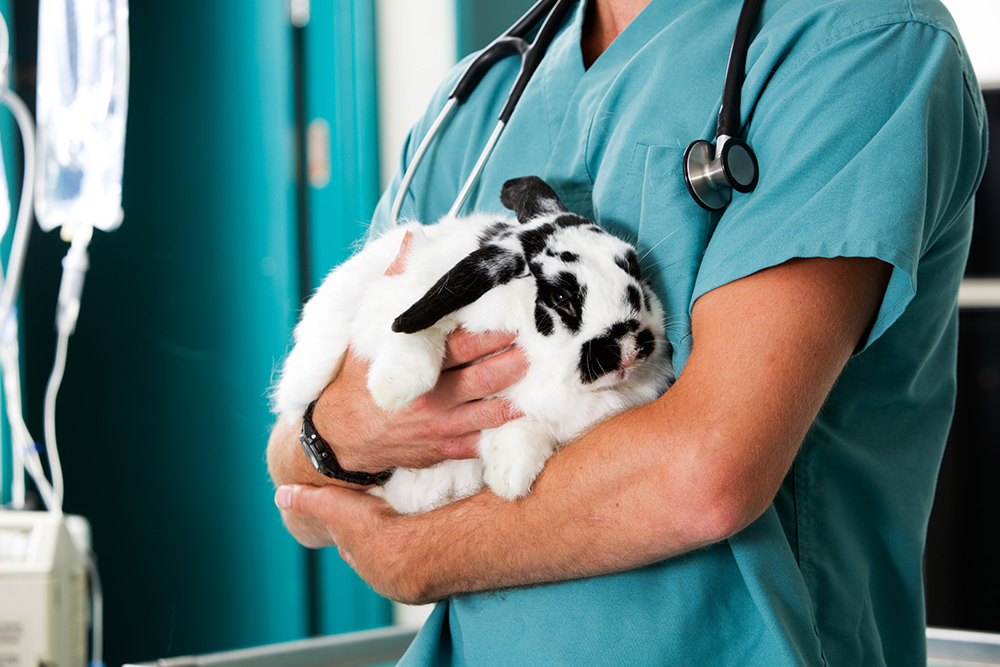
Partnering With Your Veterinarian for Lifelong Health
Rabbit health requires vigilance and teamwork. Regular wellness exams catch problems while they are manageable. Proper nutrition, husbandry, and stress reduction lay the groundwork for prevention. When illness occurs despite best efforts, prompt veterinary care makes all the difference.
At Parker Center Animal Clinic, our experienced team provides comprehensive care for rabbits and other small mammals. Our AAHA accreditation reflects high standards in anesthesia, pain management, dentistry, surgery, and medical records. We practice gentle handling, communicate clearly, and send detailed care reports after visits.
Your Next Steps
Have questions about your rabbit’s diet, housing, or behavior? Schedule an appointment online. Early guidance prevents emergencies and keeps your rabbit thriving. If you notice changes in appetite, droppings, grooming, energy, or behavior, do not wait. Rabbits conceal illness, and hours matter with conditions like GI stasis.
Our team is here to help with preventive care, diagnostics, dentistry, and treatment plans tailored to your rabbit’s needs. Contact us today- we look forward to partnering with you to keep your rabbit healthy, comfortable, and happy for years to come.


